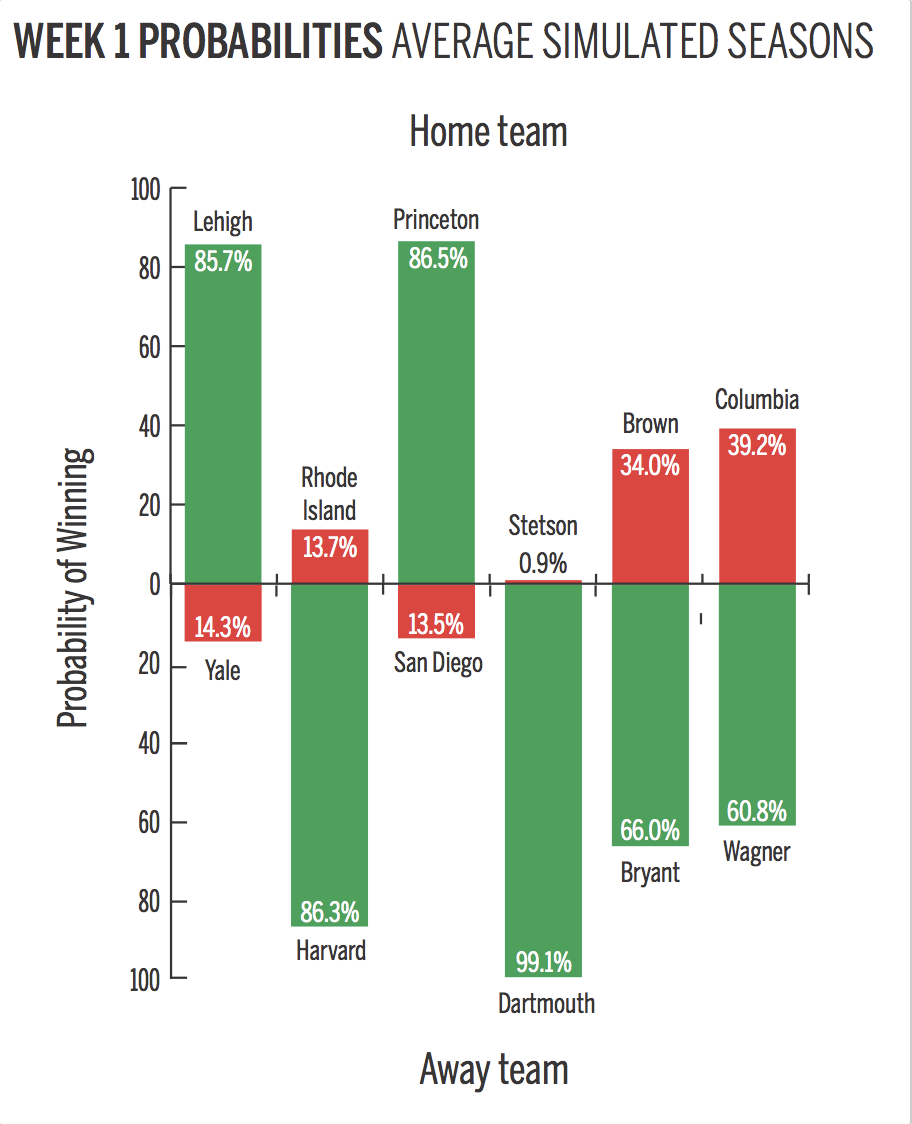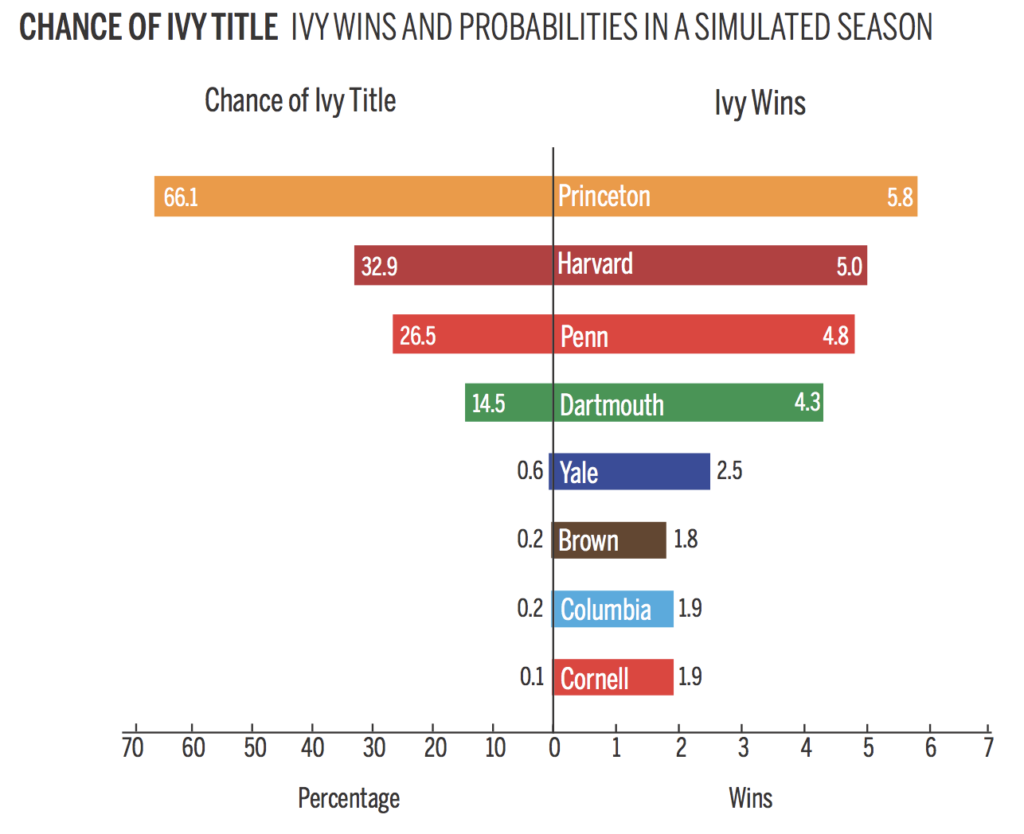
Alanis Allen
This weekend represents the much-anticipated kickoff of 2017 Ivy League football. With the start of the 10-game season comes much speculation: Will the title again be shared, or will one team dominate all seven of its rivals to stand atop the conference at season’s end?
As for Yale, everyone is wondering if the momentum from last year’s Yale-Harvard game can carry over to the beginning of this season. Was that impressive performance against the Crimson a sign of things to come, or merely an aberration? We at the Yale Undergraduate Sports Analytics Group hope to help answer these questions with data. With some statistics, we can get an idea of how the 2017 Ivy season will play out.
Our predictions mainly involve the use of our own YUSAG football model, which is essentially a weighted least-squares algorithm that yields a YUSAG coefficient for all teams in both Football Bowl Subdivision and Football Championship Subdivision football. The expected score differential between two teams can be found by taking the difference in the YUSAG coefficients for each team, while also adding a home-field advantage factor (2.4 points for FBS teams, 1.5 points for FCS). For example, an FCS team with a YUSAG coefficient of 10 playing at home would be favored by 6.5 points over an FCS team with a YUSAG coefficient of 5.0 playing on the road.
In the same sense, the YUSAG coefficient can be viewed as the number of points by which a team is expected to win over an “average” team on a neutral field. Yale’s YUSAG coefficient of -6.03, for example, indicates that they are slightly below average in FCS football.
The simplicity of the YUSAG model makes it highly interpretable, yet also requires a few caveats. First, the model is heavily based on the results of past seasons, and places extra weight on past results in predicting results for Ivy League teams that have yet to play a game this year. No new information regarding strength of recruits or loss of key players is incorporated into the model. It is expected that future results will naturally give indication of these factors.
Second, the model is highly points-based, meaning that teams are ranked not only on their wins and losses but also their margins of victory and defeat. Thus, teams like Yale that lost several games last season by large margins have an especially low rating at the beginning of the current season.
Because of this, we expect that Yale’s actual rating is most likely higher than its current rating. Again, the model should more accurately reflect the true strength of the current Yale team within a couple of weeks. For our full FBS and FCS rankings and more details on our methodology, please see our website.

Keeping all of this in mind, we present our current predictions for the Ivy League season as well as this week’s results for all Ancient Eight teams. Princeton is our early favorite to win the league, leading title contenders Harvard and Penn by 0.8 and 1.0 wins, respectively, in our simulated results and taking a share of the conference championship in nearly two-thirds of our mock seasons.
As of now, Yale is projected to be a middle-of-the-pack team; our model forecasts a second consecutive losing season for the Elis in which they slip below a resurgent Dartmouth squad and fail to join the upper echelon of Ivy League teams. Only Brown, Columbia and Cornell, the three other teams with Ancient Eight title droughts stretching back to at least 2009, are projected to finish below the Bulldogs in 2017.
The true measures of success, however, will begin on Saturday as the Bulldogs take the field against Lehigh for their Week 1 opener.
Matt Robinson | matthew.robinson@yale.edu







